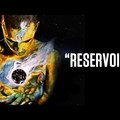„Let them give thanks to the Lord for his unfailing love and his wonderful deeds” (Psalm107:8)
As I was getting ready for my testimony, I asked myself two questions[1]. Since when do I know that I am a person of faith? And the other question: since when do I know that I am a bit different than the others?
I can answer the first question by saying that my grandmother on my mother’s side was the one who taught me about religion. But what she showed me was much more than religion. She has a personal relationship with God and what I saw and learned from her personal life was having faith in God and gaining strength from God. I thought that God knows everything about me, I experienced and felt Her presence. I didn’t have to say that I am a person of faith, faith was present in my life.
I faced the first difficulty when I realized that I don’t have the same opinion as the youth group of my Reformed[2] community at that time and they could not really accept this. It was then that I realized that a closed church community which is thinking about everything the same way is not for me. I left this community but faith was still very important for me. I had and have a good relationship with God. For me, being gay and being a person of faith is not and was never something I have to or had to reconciliate. (But I know that a lot of people struggle with this and get the label ’sinner’ from their church. And it is very hard to get rid of this label, and it kills our dignity.) Today, I would say that my faith and me being gay/queer strengthen each other. They influence each other and my theology.
I always remained a person of faith, even when I could hot hear God. I experienced several times in my life that God and her Messengers– people in my environment – stood by me in real difficult situations: when the light has become night around me, to quote a psalm. God was always there, even if I could not hear Her. Here, I would like to quote Attila Jozsef, a Hungarian poet: “God was standing here right behind me”.[3]
As the years went by, I started to miss practicing religion in a community. I thought that I wouldn’t like to practice my religion within four walls and I thought that this was not what I am destined for. I was part of a very good, activist community, Labrisz[4] but I could not practice my religion there. That is how I found Mozaik, I heard a lot of good things about it. I found an open community where we form each other a lot, where we can speak with each other without taboos and without fear. This is a safe place which is important for a lot of us. We have ecumenical meetings, we take part in clothes donations, and we invite guest pastors and priests. We spend time with God and each other. I am very glad that I am a member of Mozaik.
Concerning the second question – when did I realize that I am a bit different than the others that I am queer? I can tell a very similar story. Just as my faith, being queer was always part of me. But what does queer mean for me? Though I don’t like categories I can identify with this category the best. What it tells me is that love does not depend on gender, it is genderless. And in my opinion, there is a lot more in a person than gender. This categorylessness is represented in the letter to the Galatians, too – in Christ, there is neither male nor female… For me, this is what queer and Christ-like thinking is about: looking at the person, without any judgment or categories.
Another reason why I like the word ’queer’ is because it has an activist past[5] and I like how the word was reclaimed by scholars and activists.
I first encountered that I am not quite the same as others when fell in love with a girl and this was not as natural and acceptable for other people as for me. This happened 15 years ago. That was when I came out to my family members and later, to my friends. Some needed more time and some needed less for acceptance. For me, it was important to understand that I don’t need everyone to accept me the moment I come out – some of my family members needed more time. What counted a lot is when I personally introduced my girlfriend whom I loved.
And that is why I am standing right here because I would like to personally testify of the God who is Love. Love is a gift from God, a skill which we didn’t get by accident. I would like to summarize my testimony with quoting from John’s first letter: „Beloved, if God so loved us, we also ought to love one another. No one has seen God at any time. If we love one another, God abides in us, and His love has been perfected in us.” Amen.
[1] at this point, I would like to say thanks to the creator of the interview questions a „Leszálltak a vízbe mind a ketten” – a Hungarian publication of an LGBTQ-Christian Dialogue Project which inspired my questions
[2] more on Hungarian Reformed Church: https://en.wikipedia.org/wiki/Reformed_Church_in_Hungary
[3] the whole poem in English (and Hungarian): http://www.magyarulbabelben.net/works/hu/J%C3%B3zsef_Attila-1905/%28Az_Isten_itt_%C3%A1llt_a_h%C3%A1tam_m%C3%B6g%C3%B6tt%E2%80%A6%29/en/56399-%28God_was_standing_here_right_behind_me..._%29?interfaceLang=en
[4] Labrisz Lesbian Association https://labrisz.hu/index.php?&language=hu&language=en

